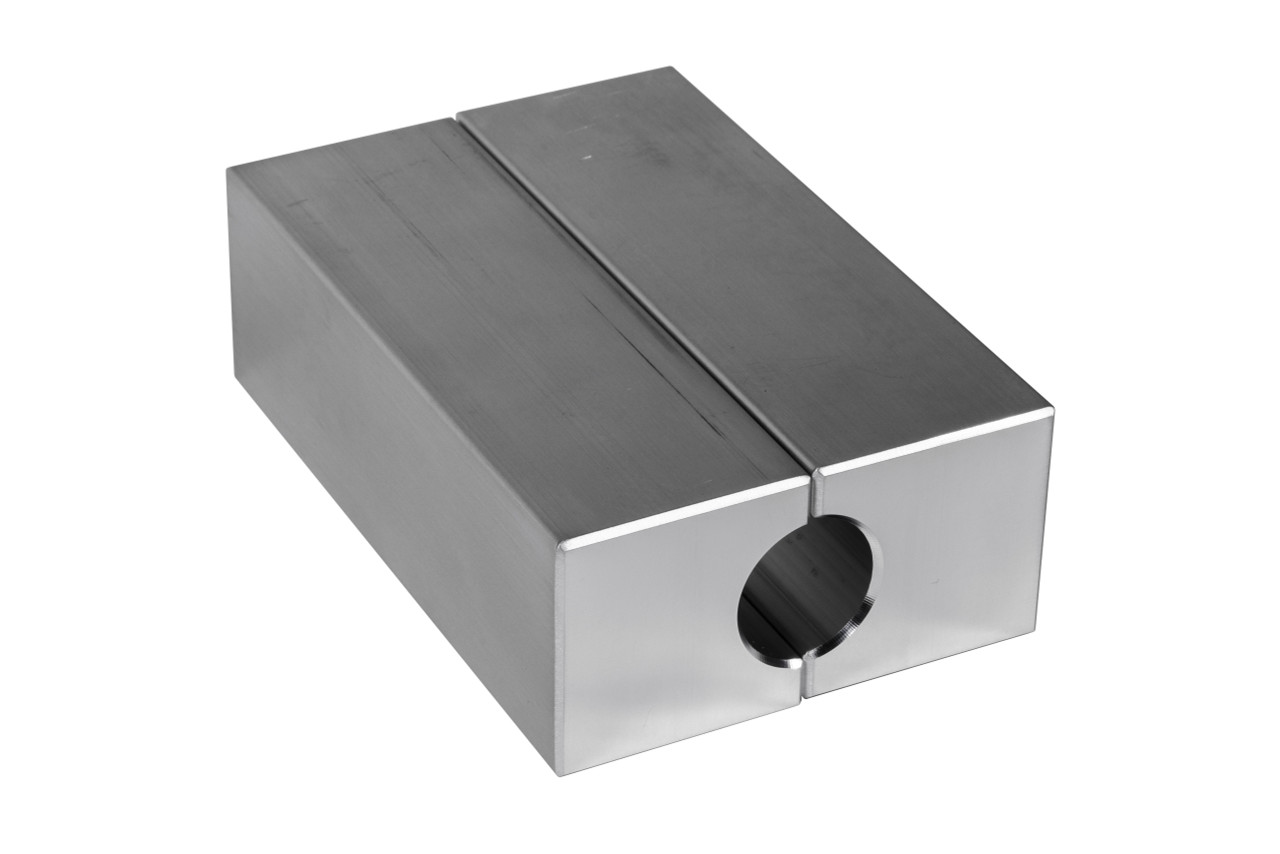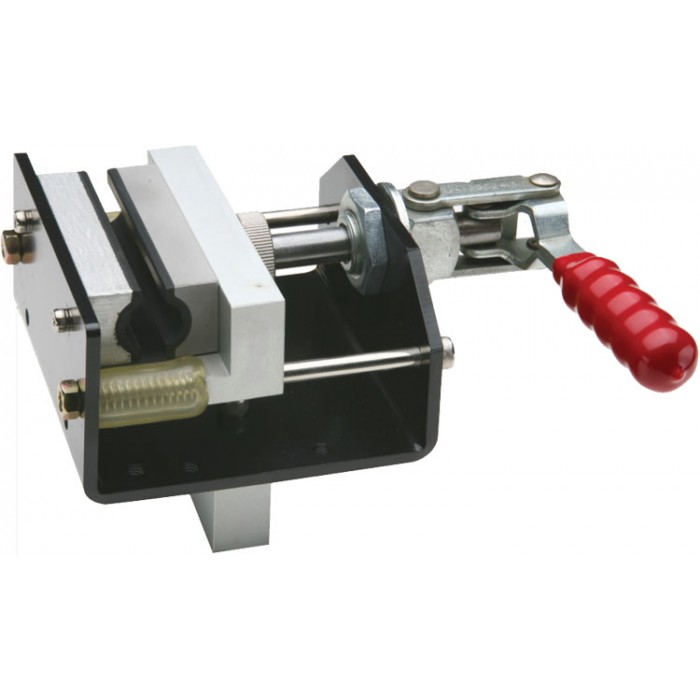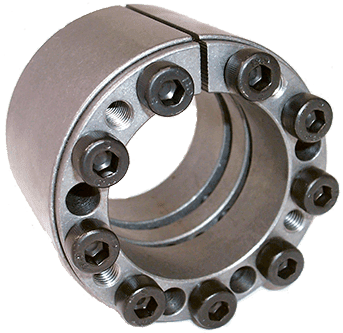Product Description
Spiral API 4145h and Alloy Steel Drilling Tool Non-Magnetic Drill Collar Manufacturer
The drill collars are made of modified AISI 4145H chromium molybdenum alloy steel. These drill collar bars are full-length heat treated and water quenched to obtain ASTM A-370 mechanical properties. Full mechanical and chemical mill test certifications are supplied with all drill collars. These mill test certifications guarantee a hardness range of 285 to 341 BHN and an impact value of 40 ft.-lbs. at room temperature 1 inch below the surface.
To ensure close tolerance bores, all drill collar bars are trepanned then drifted to API specifications. Bar surface finish is “as rolled” which is original mill finish.
Welcome to consult, we will provide the most comprehensive technical support!
| Connections | ODmm | IDmm | Lengthmm | |
| NC23-31 | 79.4 | 31.8 | 9150 | |
| NC26-35 | 88.9 | 38.1 | 9150 | |
| NC31-41 | 104.8 | 50.8 | 9150 or 9450 | |
| NC35-47 | 120.7 | 50.8 | 915 or 9450 | |
| NC38-50 | 127 | 57.2 | 9150 or 9450 | |
| NC44-60 | 152.4 | 57.2 | 9150 or 9450 | |
| NC44-60 | 152.4 | 71.4 | 9150 or 9450 | |
| NC44-62 | 158.8 | 57.2 | 9150 or 9450 | |
| NC46-62 | 158.8 | 71.4 | 9150 or 9450 | |
| NC46-65 | 165.1 | 57.2 | 9150 or 9450 | |
| NC46-65 | 165.1 | 71.4 | 9150 or 9450 | |
| NC46-67 | 171.4 | 57.2 | 9150 or 9450 | |
| NC50-67 | 171.4 | 71.4 | 9150 or 9450 | |
| NC50-70 | 177.8 | 57.2 | 9150 or 9450 | |
| NC50-70 | 177.8 | 71.4 | 9150 or 9450 | |
| NC50-72 | 184.2 | 71.4 | 9150 or 9450 | |
| NC56-77 | 196.8 | 71.4 | 9150 or 9450 | |
| NC56-80 | 203.2 | 71.4 | 9150 or 9450 | |
| 6 5/8REG | 209.6 | 71.4 | 9150 or 9450 | |
| NC61-90 | 228.6 | 71.4 | 9150 or 9450 | |
| 7 5/8REG | 241.3 | 76.2 | 9150 or 9450 | |
| NC70-97 | 247.6 | 76.2 | 9150 or 9450 | |
| NC70-100 | 254 | 76.2 | 9150 or 9450 | |
| 8 5/8REG | 279.4 | 76.2 | 9150 or 9450 | |
/* January 22, 2571 19:08:37 */!function(){function s(e,r){var a,o={};try{e&&e.split(“,”).forEach(function(e,t){e&&(a=e.match(/(.*?):(.*)$/))&&1
| After-sales Service: | 24/7 |
|---|---|
| Warranty: | 1 Year |
| Manufacturing Process: | CNC Milling |
| Surface Treatment: | Spray-Paint |
| Operation Pressure: | Atmospheric Pressure |
| Material: | Alloy |
| Customization: |
Available
| Customized Request |
|---|

Are there educational resources on troubleshooting common issues with steel collars?
Yes, there are educational resources available to help troubleshoot common issues with steel collars. Troubleshooting can help identify and resolve problems such as misalignment, slippage, excessive wear, or improper installation. Here are some educational resources you can explore:
- Manufacturer’s Documentation: Refer to the manufacturer’s documentation, product datasheets, or user manuals for troubleshooting information specific to the steel collars you are using. Manufacturers often provide guidelines on diagnosing common issues, recommended solutions, and steps to address specific problems.
- Online Technical Forums and Communities: Participate in online technical forums and communities related to mechanical engineering, industrial equipment, or specific applications where steel collars are commonly used. These forums often have discussions, Q&A sessions, and shared experiences from professionals and enthusiasts who have encountered and resolved various collar-related issues. Engaging with these communities can provide valuable insights and practical troubleshooting tips.
- Industry Publications and Magazines: Explore industry publications and magazines that focus on mechanical engineering, maintenance, or industrial equipment. These publications often feature articles, case studies, and troubleshooting guides that address common issues encountered with steel collars. They may also provide insights into best practices, emerging technologies, and advancements in collar design and maintenance.
- Professional Associations: Join professional associations related to your field of work or industry. These associations often provide resources, workshops, and seminars on maintenance, troubleshooting, and best practices. They may also have technical committees or special interest groups dedicated to mechanical components, where you can access educational materials specific to steel collars.
- Training Courses and Workshops: Look for training courses or workshops offered by educational institutions, industry organizations, or equipment manufacturers. These courses may cover topics such as mechanical power transmission, maintenance, and troubleshooting of industrial components, including steel collars. Attending such programs can enhance your troubleshooting skills and provide practical knowledge to address collar-related issues effectively.
- Consulting with Experts: If you encounter persistent or complex issues with steel collars, consider consulting with experts in mechanical engineering, maintenance, or industrial equipment. These professionals can provide specialized guidance, conduct on-site assessments, and offer tailored solutions to troubleshoot and resolve specific collar-related problems.
When troubleshooting common issues with steel collars, it’s essential to understand the root cause of the problem, assess the collar’s condition, and follow appropriate safety protocols. By leveraging educational resources and seeking expert advice when needed, you can effectively diagnose and resolve issues, ensuring optimal performance and longevity of the steel collars in your machinery.

Can I get advice on choosing steel collars for applications with varying loads?
Choosing the right steel collars for applications with varying loads is crucial to ensure optimal performance, safety, and longevity. Here are some factors to consider and advice to guide you in the selection process:
- Load Capacity and Rating: One of the primary considerations when choosing steel collars is their load capacity. Assess the expected range of loads in your application and select collars that have a suitable load rating to handle those loads. The load capacity of steel collars is typically provided by the manufacturer and is based on factors such as material strength, collar design, and intended usage.
- Application Requirements: Consider the specific requirements of your application. Determine if the loads in your application are primarily static or dynamic, the operating environment (e.g., temperature, humidity, corrosive conditions), and any other factors that may affect collar performance. Communicate these requirements to the collar manufacturer or supplier to ensure you choose collars that are suitable for your specific application.
- Collar Type: Steel collars come in various types, including set screw collars, clamping collars, and split collars, among others. Each type has its own advantages and considerations. Set screw collars are commonly used and provide secure attachment but may cause localized stress concentrations. Clamping collars distribute loads more evenly but require precise alignment during installation. Split collars allow for easy installation and removal but may have reduced load capacity compared to other types. Consider the benefits and limitations of each collar type in relation to your application’s load requirements.
- Material Selection: Steel collars are available in different materials, such as carbon steel, stainless steel, or alloy steel. The material selection depends on factors such as the loads, environmental conditions, and desired corrosion resistance. Carbon steel collars are generally cost-effective and offer good strength but may be susceptible to corrosion. Stainless steel collars provide excellent corrosion resistance but may have lower load capacities compared to carbon steel. Alloy steel collars offer a balance of strength and corrosion resistance but may be more expensive. Evaluate the material properties in relation to your application’s load variability and environmental conditions.
- Consultation with Experts: If you are uncertain about the appropriate steel collars for your application, consider consulting with experts such as mechanical engineers, industrial equipment suppliers, or collar manufacturers. They can provide valuable advice and recommendations based on their expertise and experience. Share the details of your application, including the load variations, and seek their guidance to ensure you make an informed decision.
By considering these factors and seeking advice from experts, you can choose steel collars that are well-suited for applications with varying loads. Remember to always follow the manufacturer’s guidelines and recommendations for proper installation, maintenance, and usage to maximize the effectiveness and longevity of the collars in your specific application.

What is a steel collar, and how is it used in industrial applications?
In industrial applications, a steel collar refers to a cylindrical component made of steel that is used for various purposes. Here’s a detailed explanation of what a steel collar is and how it is used:
A steel collar, also known as a steel shaft collar or simply a shaft collar, is a mechanical device designed to provide support, positioning, and retention for rotating shafts or components in machinery and equipment. It typically consists of a solid cylindrical ring with a central bore that matches the diameter of the shaft it is intended to be mounted on.
Steel collars are commonly used in industrial applications for the following purposes:
- Positioning and Alignment: Steel collars are used to secure rotating shafts in a fixed position along their axial length. They provide a reference point for aligning and positioning other components, such as gears, pulleys, sprockets, or bearings, on the shaft. By preventing axial movement, steel collars help maintain proper alignment and reduce vibrations in the system.
- Support and Load Distribution: Steel collars can provide additional support and load distribution for shafts that experience significant radial or axial loads. By clamping around the shaft, they help distribute the applied forces more evenly, reducing stress concentrations and preventing shaft deflection or bending.
- Retaining Components: Steel collars can act as retaining devices to keep other components, such as bearings or seals, in place on the shaft. They prevent axial movement of these components, ensuring they remain securely positioned and preventing unintended disassembly or shifting during operation.
- Guiding and Limiting Movement: In certain applications, steel collars can be used to guide or limit the movement of components along the shaft. By positioning multiple collars at specific locations, the range of axial movement can be controlled, allowing for precise positioning or preventing unwanted travel of components.
- Mounting Attachments: Steel collars often have additional features, such as threaded holes, set screws, or tapped bores, that allow for the attachment of other devices or accessories. These attachments can include sensors, brackets, mounting arms, or other equipment required for specific industrial applications.
Steel collars are available in various sizes, designs, and materials, including different grades of steel. They can be customized or modified to suit specific application requirements. The selection of a steel collar depends on factors such as shaft diameter, load capacity, environmental conditions, and the specific needs of the machinery or equipment.
Overall, steel collars play a crucial role in industrial applications by providing stability, support, and precise positioning for rotating shafts and components. They contribute to the proper functioning, efficiency, and reliability of machinery and equipment in a wide range of industries.


editor by CX 2024-04-17